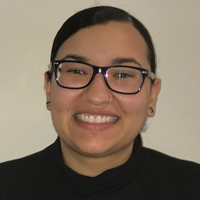Forbes Article on Inclusivity in Higher Education Highlights CERP Project
A recent Forbes article written by Maria Klawe, president of Harvey Mudd College and a former CRA board member, addresses “Why We Need Inclusive Teaching In Every Classroom.” In the article, Klawe interviews Colleen Lewis, a computer science professor at Harvey Mudd, about Lewis’ work to develop, incorporate, and disseminate inclusive teaching practices. Lewis researches issues of diversity and gender in computer science education and collaborates with CRA’s Center for Evaluating the Research Pipeline (CERP). In the article, she shares resources and mentions her new project with CERP.
Klawe begins the article with an introduction to why a sense of belonging is important for persistence in higher education.
Feeling like you belong—in a classroom, in a major, at an institution—is one of the most important factors in whether you persist and succeed in college. When students sense that their backgrounds, perspectives and identities are welcomed and valued, in class discussions and in their academic field overall, they engage more, learn more and are more likely to continue their studies.
These kinds of inclusive learning environments don’t just happen, they are intentionally created by faculty who incorporate deliberate, inclusive teaching practices. Inclusive teaching increases learning for students from backgrounds that have been traditionally underrepresented in higher education, and, what is more, research has shown that it benefits all students.
But as college classrooms become increasingly diverse in terms of race, ethnicity, culture, gender and socio-economic status, it can be challenging to create inclusive, supportive, equitable learning environments for all students.
Lewis created CSTeachingTips.org, which documents effective teaching practices within computer science. “This includes disseminating information about broadly applicable inclusive teaching practices, many of which are active-learning based, as well as computer science-specific insights into the teaching and learning of computer science.”
She also highlights what she is working on next:
Lewis: In a project recently funded by the NSF, I’ll be working with the Computing Research Association to understand what department initiatives are most effective for improving students’ experiences within the department towards the goal of broadening participation in computing. The Computing Research Association administers an annual survey, called the Data Buddies Survey, to computing students in the U.S. We’ll analyze student responses to this survey in addition to determining characteristics of the departments.
In collaboration with Lewis, CRA’s CERP has already begun gleaning more insights about students’ experiences as a result of their new NSF funding. As part of this project, CERP will be combining their rich survey data on students with new departmental data in order to understand the factors that impact diversity in computing higher education. The findings from this research will provide the community with evidence based best practices that can be implemented by computing departments as well as other organizations working on broadening participation in computing. This collaborative effort will include active interaction with the departments in order to maximize the usefulness and reach of the best practices.
Click here to read the full article.



